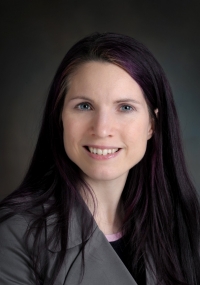 ECS is set to participate in its fifth International Open Access Week, an annual event organized by SPARC, the Scholarly Publishing and Academic Resources Coalition. From October 21-27, ECS will take down the paywall to the entire ECS Digital Library, making over 151,000 scientific articles and abstracts free and accessible to everyone. (more…)
ECS is set to participate in its fifth International Open Access Week, an annual event organized by SPARC, the Scholarly Publishing and Academic Resources Coalition. From October 21-27, ECS will take down the paywall to the entire ECS Digital Library, making over 151,000 scientific articles and abstracts free and accessible to everyone. (more…)
Call for Nominations: JES Technical Editor in Fuel Cells, Electrolyzers, and Energy Conversion
Posted on July 26, 2019 by Andrew Ryan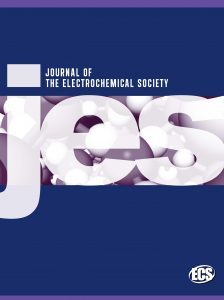 Deadline: September 13, 2019
Deadline: September 13, 2019
ECS is seeking to fill the position of technical editor in fuel cells, electrolyzers, and energy conversion for the Journal of The Electrochemical Society (JES).
Nominees for this position must possess and maintain scientific knowledge of the scope of the fuel cells, electrolyzers, and energy conversion topical interest area, which covers theoretical and experimental aspects of all types of fuel cells, electrolyzers, photovoltaics, and photoelectrochemistry. Specific topics as relates to energy conversion include design, modeling, testing, and evaluation; novel electrode structures and their characterization, including electrocatalytic materials and electrocatalysis; engineering aspects of fuel, electrochemical fuel synthesis, water, and thermal management. Materials at high temperatures are included.
The technical editor will be appointed for a minimum initial two-year term, renewable for additional terms, up to a maximum of 12 years total service in this role.
Call for Papers: Heterogeneous Functional Materials for Energy Conversion and Storage
Posted on July 25, 2019 by ECS Staff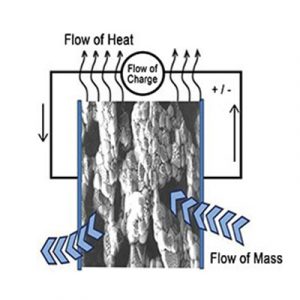 Submission Deadline: October 23, 2019
Submission Deadline: October 23, 2019
Submit your manuscripts to the Journal of The Electrochemical Society Focus Issue on Heterogeneous Functional Materials for Energy Conversion and Storage.
About the focus issue
This special issue focuses on Heterogeneous Functional Materials (HeteroFoaMs), which are pervasive in electrochemical devices. These devices consist of multiple materials combined at multiple scales (from atomic to macro) that actively interact during their functional history in a manner that controls their collective performance as a system at the global level. The principal motivation for this special issue will be to provide a forum to discuss the science that controls emergent properties in heterogeneous functional materials as a foundation for design of functional material devices with performance not bounded by constituent properties.
Now Hiring: Publications Specialist/Interface Production Editor
Posted on July 25, 2019 by ECS Staff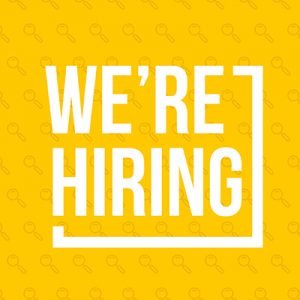 ECS seeks publications specialist/Interface production editor
ECS seeks publications specialist/Interface production editor
Reports to: Director of Publications
Classification: Full Time Exempt
MAJOR FUNCTION
Responsible for the production and dissemination of Interface consistent with ECS goals, objectives, and policies. Provides assistance in the management of ECS publications by performing various duties related to journals/ECST production and data collection and analysis, specifically with respect to publications usage statistics. (more…)
Call for Papers: Mathematical Modeling of Electrochemical Systems at Multiple Scales in Honor of Richard Alkire
Posted on July 24, 2019 by ECS Staff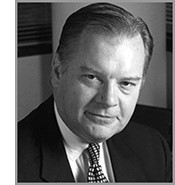 Submission Deadline: September 30, 2019
Submission Deadline: September 30, 2019
Submit your manuscripts to the Journal of The Electrochemical Society Focus Issue on Mathematical Modeling of Electrochemical Systems at Multiple Scales in Honor of Richard Alkire.
About the focus issue
This focus issue of the Journal of The Electrochemical Society is devoted to the mathematical modeling of electrochemical systems across multiple scales. Advances in electrochemical systems will be greatly influenced by the use of advanced simulation tools for the design and control of materials and processes. The figure below illustrates some of the computational methods that have been developed to deal with phenomena at different time and length scales, ranging from atomic to macro, in order to compute properties and model phenomena. This issue is inspired by the work of Professor Richard Alkire from the University of Illinois-Urbana Champaign, who has been a pioneer in the multiscale modeling of electrochemical systems. In addition, Professor Alkire has led the community in establishing a vision for such work and has trained and influenced countless researchers on this topic over the years. The issue will be dedicated to him in recognition of his contributions to this field. (more…)
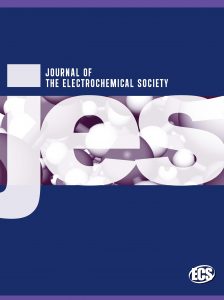 To recognize the innovative research gaining attention across the diverse span of its topical interest areas, the Society highlights the top five most-read journal articles in each area during each quarter of the year.
To recognize the innovative research gaining attention across the diverse span of its topical interest areas, the Society highlights the top five most-read journal articles in each area during each quarter of the year.
The most-read Journal of The Electrochemical Society articles by topical interest area during the second quarter of 2019 (April through June) are listed below.
Highlights are based on articles published since January 1, 2017.
ALL of the articles listed below are open access.
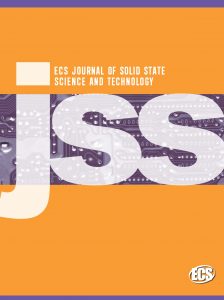 To recognize the innovative research gaining attention across the diverse span of its topical interest areas, the Society highlights the top five most-read journal articles in each area during each quarter of the year.
To recognize the innovative research gaining attention across the diverse span of its topical interest areas, the Society highlights the top five most-read journal articles in each area during each quarter of the year.
The most-read ECS Journal of Solid State Science and Technology articles by topical interest area during the second quarter of 2019 (April through June) are listed below.
Highlights are based on articles published since January 1, 2017.
Articles marked OA are open access.
Editors’ Choice—Development of Screen-Printed Flexible Multi-Level Microfluidic Devices with Integrated Conductive Nanocomposite Polymer Electrodes on Textiles
Bonnie Gray, a professor at Simon Fraser University’s school of engineering science, was inspired by the city of Vancouver in British Columbia in her latest work.
“Vancouver is well-known for its technical clothing, and I have a lot of friends in the film industry who work in costume design. A combination of these influences and my own engineering background caused me to look further into integrating clothing with technology. That’s how I went on to become involved in developing screen-printed flexible multi-level microfluidic devices on textiles,” said Gray, which led to the fruition of her and lead author Daehan Chung‘s research paper, “Development of Screen-Printed Flexible Multi-Level Microfluidic Devices with Integrated Conductive Nanocomposite Polymer Electrodes on Textiles.”
In their open access paper, published in the Journal of The Electrochemical Society, the pair “present a flexible plastisol-based microfluidic process integrated with conductive nanoparticle composite polymer (C-NCP) electrodes for flexible active microfluidic devices on textile substrates.”
According to Gray, flexible and wearable microfluidic devices are among the newest wearable devices for applications in health monitoring, drug delivery systems, and bio-signal sensing. (more…)
 Did you know that ECS has published over 20,000 proceedings papers in ECS Transactions? Then, in 2018, we launched our preprint server, ECSarXiv, in order to provide our community with even more opportunities to share their research. Now, we need your feedback.
Did you know that ECS has published over 20,000 proceedings papers in ECS Transactions? Then, in 2018, we launched our preprint server, ECSarXiv, in order to provide our community with even more opportunities to share their research. Now, we need your feedback.
Share your thoughts on ECS’s alternative publications venues by taking our brief 5-minute survey. Your feedback will help provide us with valuable information to improve our authors’ publishing options.
Respondents will have the option to provide their contact information in order to be entered in a drawing for one of six $20 Amazon gift cards. (more…)
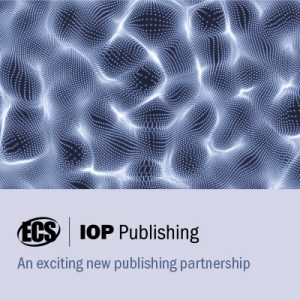 The Electrochemical Society has some exciting news! ECS has selected IOP Publishing (IOPP) as its journals publishing partner.
The Electrochemical Society has some exciting news! ECS has selected IOP Publishing (IOPP) as its journals publishing partner.
Starting in 2020, IOPP will partner with ECS in the publication of the Journal of the Electrochemical Society and the ECS Journal of Solid State Science and Technology and the hosting of ECS Transactions, ECS Meeting Abstracts, and Interface as well as the hosting of the archives for ECS’s retired publications—ECS Electrochemistry Letters, ECS Solid State Letters, Electrochemical and Solid State Letters, and ECS Proceedings Volumes.
Christopher Jannuzzi, executive director and CEO of ECS, said: “ECS has a 117+ year reputation for creating outstanding, peer-reviewed periodicals, conference proceedings, and magazines. We have a long-standing commitment to ensure the technical quality of the works published, as well as the integrity and validity of the peer review our community provides. (more…)


